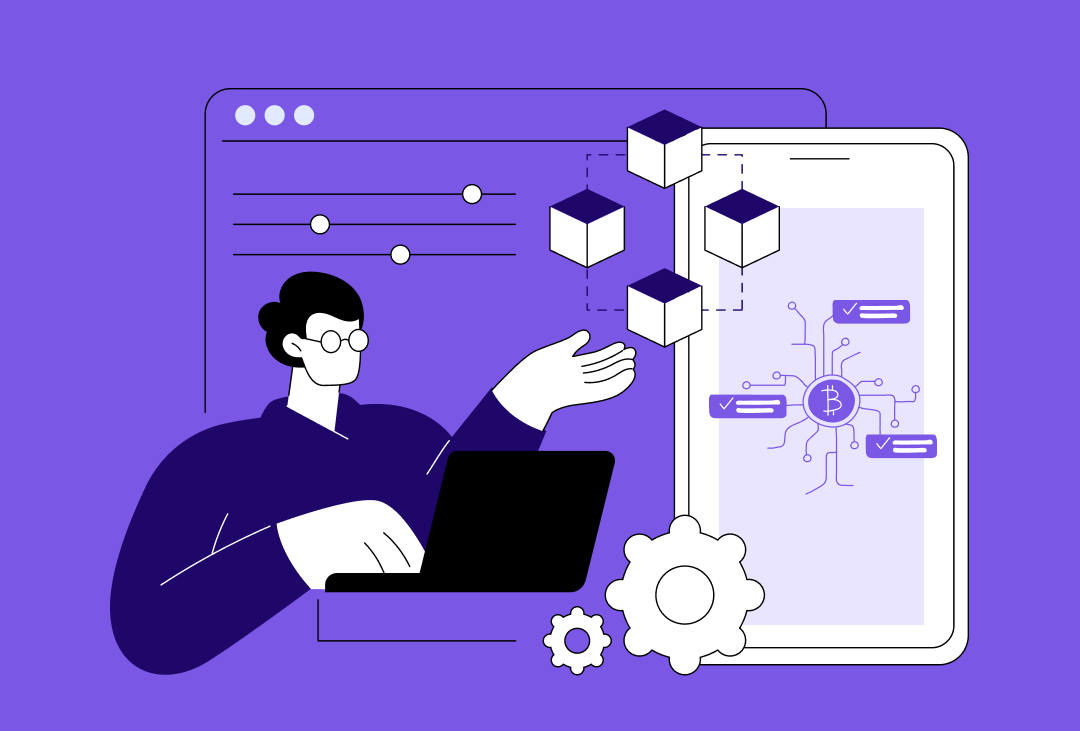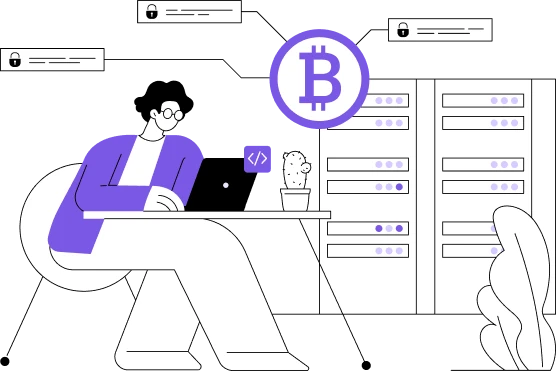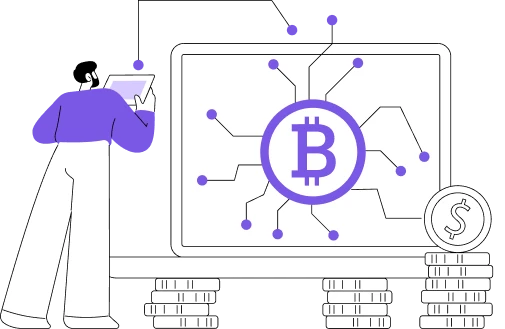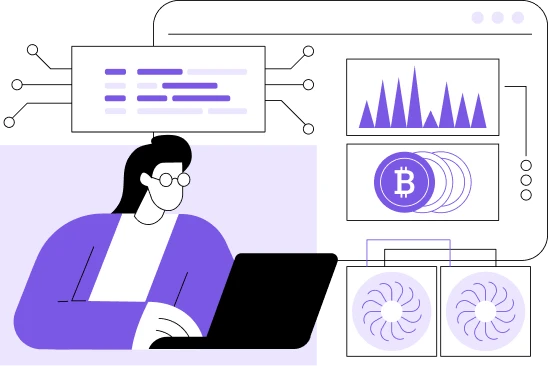- A Comprehensive View of the Costs Involved in Developing a Blockchain App
- Detailed Cost Breakdown by Complexity Levels
- Breakdown of Costs by Development Stages
- Blockchain App Development Cost Estimation Formula
- Time and Effort Estimates
- Factors Affecting Blockchain App Development Costs
- Complexity of Design
- Backend Development Complexity
- Third-party Integrations
- Security Measures
- Compliance Measures
- Platform Selection Impact
- Technology Integration Costs
- Hidden Costs in App Development: What You Need to Know
- App Maintenance and Regular Updates
- Infrastructure and Hosting
- Marketing and Promotion
- Legal and Licensing Fees
- Ways to Optimize Blockchain App Development Costs
- Developing an MVP First
- Prioritizing Necessary Features
- Leveraging Cross-platform Development
- Automating Repetitive Processes
- Selecting the Right Blockchain Platform
- How to Develop a Blockchain App in the UAE
- Step 1: Strategic Planning and Analysis
- Step 2: Technical Architecture Design
- Step 3: UI/UX Design and Prototyping
- Step 4: Development and Implementation
- Step 5: Testing and Quality Assurance
- Step 6: Deployment and Launch
- Winning Strategies to Differentiate Your Blockchain App in the UAE
- How Blockchain Apps Make Money: Proven Monetization Strategies
- Additional Monetization Strategies for Blockchain App
- Build a High-Performance Blockchain App in the UAE with Appinventiv
- FAQs
Key takeaways:
- The UAE blockchain market is rapidly expanding, with the BFSI sector capturing over 50% of the market share.
- As blockchain adoption accelerates, development costs in the UAE range from AED 55,000 to AED 1.85 million, depending on app complexity and features.
- Factors such as platform selection, security measures, and third-party integrations directly impact the final cost of blockchain apps.
- By focusing on building an MVP, businesses can reduce development costs by 30-40%, allowing for quicker market entry.
- To stand out in the UAE’s competitive blockchain market, companies must prioritize security, intuitive UI/UX, and regulatory compliance in their development strategy.
The UAE is not merely adopting blockchain—it’s shaping its future. According to the Official Portal of the UAE Government, national initiatives like Dubai Blockchain Strategy are turning bold visions into reality. The goal is to shift half of all government transactions onto blockchain and establish Dubai as the first city in the world to be fully powered by this technology.
These aren’t distant ambitions. With the Dubai Customs blockchain platform launching in July 2024 and the UAE emerging as one of the top destinations for global digital talent, the transformation is already well underway.
Globally, the momentum is undeniable. Enterprise Architecture (EA) and technology innovation leaders are turning to blockchain to drive real-world impact. Gartner predicts that blockchain will generate $176 billion in business value by 2025, soaring to $3.1 trillion by 2030.

As per its digital disruption scale, blockchain is expected to revolutionize by 2025, transforming core sectors such as finance, supply chain, real estate, and healthcare by reimagining how data is exchanged, verified, and secured.
For startups, enterprises, and blockchain innovators, this presents a rare window of opportunity. Choosing not to invest in this rapidly growing ecosystem could mean missing out on one of the most fertile markets for blockchain innovation. The region is setting the stage for what the future of business, governance, and technology will look like—and only those who act now will shape it.
In this comprehensive guide, we break down the actual cost to build a blockchain app in the UAE, which ranges from AED 55,000 to AED 1.85 million ($40,000 to $500,000), depending on the scope and complexity. We’ll also uncover the key factors influencing pricing, potential hidden expenses, cost-saving strategies, development insights, revenue models, and everything you need to make a well-informed, strategic blockchain investment in the Emirates.
The question is no longer whether to build in the UAE, but whether you’re ready to lead the next wave of blockchain transformation.
Start reaping its benefits today.
A Comprehensive View of the Costs Involved in Developing a Blockchain App
Developing a blockchain app is a multi-stage process, with each phase influencing the overall budget. Key cost drivers include app complexity, the choice of blockchain platform, security measures, and additional features. One of the most significant factors is the cost of smart contract development, which varies based on contract complexity and functionality. Carefully analyzing these elements helps ensure your blockchain app is delivered within budget while aligning with your long-term business goals.
Detailed Cost Breakdown by Complexity Levels
The cost breakdown for blockchain app development depends largely on the complexity of the features and functionality required. By analyzing the cost breakdown across these complexity levels, you can better understand where to allocate resources and plan accordingly to ensure that your blockchain app development stays within budget.
| Complexity Level | Cost Range (AED) | Cost Range (USD) | Timeline | Features |
|---|---|---|---|---|
| Simple Apps | 55,000 – 185,000 | 15,000 – 50,000 | 2-4 months | Basic wallets, simple smart contracts, document verification |
| Moderate Apps | 185,000 – 555,000 | 50,000 – 150,000 | 4-8 months | DApps, supply chain tracking, healthcare records |
| Enterprise Apps | 555,000 – 1,850,000+ | 150,000 – 500,000+ | 8-18 months | CBDC integration, cross-border payments, government platforms |
Breakdown of Costs by Development Stages
Understanding the cost to build a blockchain app in the UAE starts with breaking down the expenses across each development phase. This helps businesses allocate budgets effectively and manage cash flow throughout the project lifecycle. Each stage—be it planning, design, development, or deployment—demands specialized expertise and resources, with costs varying based on the app’s complexity, features, and compliance requirements in the region.
The percentages shown represent industry standards for blockchain app development in the UAE market. Proper planning at each stage ensures optimal resource utilization and reduces the risk of budget overruns during later phases.
Planning and Discovery (5-10% of total budget)
During the planning and discovery phase, the foundation for the app is established. This stage focuses on market research, feasibility analysis, and defining the app’s technical requirements. Proper planning ensures that the app’s vision aligns with the business goals, regulatory requirements, and user needs.
Duration: 2-4 weeks
Cost Range: AED 2,750 – 18,500 ($750 – $5,000)
- Market research and feasibility analysis
- Technical architecture design
- Regulatory compliance planning
- Team formation and resource allocation
Design Phase (15-20% of total budget)
The design phase focuses on creating the UI/UX for both web and mobile platforms. It involves designing smart contract architecture and planning the database schema to ensure scalability and security. A well-designed app fosters better user engagement and satisfaction.
Duration: 3-6 weeks
Cost Range: AED 8,250 – 37,000 ($2,250 – $10,000)
- UI/UX design for web and mobile interfaces
- Smart contract architecture design
- Database schema planning
- Security framework design
Development Phase (60-70% of total budget)
The development phase is the most time-consuming and expensive stage, where the actual coding takes place. Smart contracts are developed and tested, and both frontend and backend systems are built. Third-party integrations, security measures, and performance optimizations are also implemented.
Duration: 2-12 months
Cost Range: AED 33,000 – 1,295,000 ($9,000 – $350,000)
- Smart contract development and testing
- Frontend and backend development
- Third-party integrations
- Security implementation
Launch and Deployment (10-15% of total budget)
Once the app is developed, it’s ready for deployment. This phase includes conducting security audits, training users, and finalizing the go-to-market strategy. The app is deployed to production environments and made available to users.
Duration: 2-6 weeks
Cost Range: AED 5,500 – 27,750 ($1,500 – $7,500)
- Production deployment
- Security audits
- User training and documentation
- Go-to-market execution
Maintenance (15-25% annually)
The maintenance phase ensures the app stays functional and secure post-launch. It includes bug fixes, updates, performance optimization, and the addition of new features. Security monitoring is crucial for identifying vulnerabilities and ensuring seamless app performance.
Ongoing Cost: AED 8,250 – 462,500 ($2,250 – $125,000) per year
- Bug fixes and updates
- Security monitoring
- Performance optimization
- Feature enhancements
Blockchain App Development Cost Estimation Formula
Estimating the cost of blockchain app development involves considering factors like the app’s complexity, required features, platform choice, and ongoing app maintenance. A simple formula to estimate the cost is:
Total Blockchain App Development Cost = (Hourly Rate of Team) × (Total Development Hours) + (Infrastructure Costs) + (Compliance Costs)
Example Calculation:
- Team of 5 developers at AED 250/hour average
- 1,000 development hours
- Infrastructure: AED 37,000
- Compliance: AED 55,500
- Total: (250 × 1,000) + 37,000 + 55,500 = AED 342,500
Time and Effort Estimates
The time and effort required for app development vary based on the complexity of the project. For simpler apps, a smaller team can complete the development in a few months, while more advanced solutions, like DeFi platforms or enterprise-grade systems, demand a larger team and a longer development timeline.
Understanding these estimates helps in setting realistic expectations and ensures proper resource allocation throughout the development process. The scale of the project directly impacts both the number of developers and the number of hours needed.
| Project Type | Team Size | Development Hours | Timeline |
|---|---|---|---|
| Simple Wallet App | 3-4 developers | 800-1,200 hours | 2-4 months |
| DeFi Platform | 6-8 developers | 2,000-3,500 hours | 4-8 months |
| Enterprise Solution | 10-15 specialists | 4,000-8,000 hours | 8-18 months |
Factors Affecting Blockchain App Development Costs
The blockchain app development cost in the UAE is influenced by several factors throughout the project. These can range from the technical requirements and features needed to the level of customization and security implemented. Understanding these factors is essential for accurately estimating the overall cost and ensuring that the project aligns with both your budget and business objectives.

Complexity of Design
The design complexity plays a significant role in the cost of blockchain app development. A simple interface with basic web and mobile designs, featuring minimal custom graphics, will cost between AED 18,500 – 37,000 ($5,000 – $10,000). For more sophisticated projects, advanced UI/UX designs with custom animations, multi-platform responsive designs, and data visualizations are required.
These designs elevate the user experience, with costs ranging from AED 55,500 – 111,000 ($15,000 – $30,000). The most complex designs include enterprise dashboards, which feature real-time analytics and multi-user role management, and can cost between AED 111,000 – 185,000 ($30,000 – $50,000).
Backend Development Complexity
Backend development complexity directly impacts the overall blockchain app development cost. A standard backend, which includes basic API development, standard database integration, and simple server architecture, will cost around AED 37,000 – 74,000 ($10,000 – $20,000).
As the app grows in complexity, more advanced backend features are required, such as complex API ecosystems, multi-database management, and scalable cloud architecture, pushing costs to AED 111,000 – 222,000 ($30,000 – $60,000). Apps that require real-time data processing will be at the higher end of this cost range.
Third-party Integrations
Integrating third-party services into your blockchain app introduces additional costs. For payment gateway integrations, the cost typically ranges from AED 11,000 – 37,000 ($3,000 – $10,000), while KYC/AML services needed for compliance can range from AED 18,500 – 55,500 ($5,000 – $15,000).
Other integrations, like banking APIs (AED 22,200 – 74,000 / $6,000 – $20,000), IoT sensors (AED 37,000 – 111,000 / $10,000 – $30,000), and AI/ML services (AED 55,500 – 148,000 / $15,000 – $40,000), are also commonly required, adding to the cost based on their complexity and importance to the app’s functionality.
Security Measures
Security is critical in blockchain app development, and the level of security chosen affects the blockchain app development cost in the UAE. Basic security measures, including standard encryption and basic authentication, will cost between AED 18,500 – 37,000 ($5,000 – $10,000). More advanced security, such as multi-factor authentication, advanced encryption, and penetration testing, will cost between AED 55,500 – 111,000 ($15,000 – $30,000).
The highest level of security, enterprise security, which includes zero-trust architecture and advanced threat detection, is essential for large-scale apps and comes with a price range of AED 111,000 – 222,000 ($30,000 – $60,000).
Also Read: How Does Blockchain Resolve Data Privacy and Security Issues for Businesses?
Compliance Measures
Compliance is a critical consideration for blockchain apps, especially in the UAE, where regulatory requirements are stringent. VARA licensing costs range from AED 37,000 – 74,000 ($10,000 – $20,000), while CBUAE requirements add between AED 18,500 – 55,500 ($5,000 – $15,000) to the total.
For compliance with ADGM/DIFC regulations, businesses will incur costs between AED 55,500 – 111,000 ($15,000 – $30,000). Adherence to international standards can further increase costs, ranging from AED 37,000 – 148,000 ($10,000 – $40,000).
Platform Selection Impact
The platform selected for blockchain development can significantly influence development costs. Public blockchains generally have lower initial development costs, but they incur ongoing transaction fees and offer limited customization. In contrast, private blockchains come with a higher initial investment—often 30–50% more—but provide full control, enhanced security, and extensive customization options. While the private blockchain project cost may be higher upfront, the long-term benefits include reduced operational expenses and greater scalability tailored to specific business needs.
Hybrid solutions fall in the middle, offering a balanced approach to flexibility and cost but requiring more complex architecture, leading to moderate initial costs.
Technology Integration Costs
Integrating emerging technologies such as AI, IoT, and advanced analytics into blockchain apps adds to the overall cost. AI integration increases costs by approximately 25-40% of the base development cost.
Similarly, adding IoT connectivity raises costs by 20-35%, and incorporating advanced analytics adds 15-25%. For blockchain apps that require cross-chain compatibility, the integration can cost an additional 30-50% of the base development cost, depending on the complexity of the integration.
Hidden Costs in App Development: What You Need to Know
When planning an app development project, businesses often focus on the initial development costs, overlooking ongoing expenses that can significantly impact the budget. Below, we’ll break down each of these hidden costs and explore their impact on your overall app budget.

App Maintenance and Regular Updates
Post-launch maintenance is essential to keep the app secure, functional, and aligned with evolving user expectations. Routine upkeep (15–20% annually) includes bug fixes, performance optimization, security patches, and platform compatibility updates. Major updates (5–10% annually) involve adding new features, upgrading tech stacks, and ensuring compliance with industry standards, which is crucial for long-term relevance and user retention.
Infrastructure and Hosting
Your app’s hosting environment plays a vital role in its overall performance, security, and uptime. The type of hosting you choose can significantly impact the costs involved, especially as your app scales. Below is a table that explains the different types of hosting options, their costs, and their suitability for different app needs.
| Hosting Type | Monthly Cost (AED) | Monthly Cost (USD) | Description |
|---|---|---|---|
| Basic Cloud Hosting | AED 1,500 – 5,500 | $400 – $1,500 | Suitable for small-scale apps with moderate traffic. |
| Enterprise Hosting | AED 7,500 – 18,500 | $2,000 – $5,000 | Designed for apps requiring better performance and enhanced security. |
| High-Availability Setup | AED 18,500+ | $5,000+ | Built for mission-critical apps requiring minimal downtime and maximum reliability. |
Marketing and Promotion
Marketing is yet another factors that influences the cost to build a blockchain app in the UAE. it is crucial for ensuring your app reaches its target audience and remains competitive. The typical marketing budget can range from AED 18,500 to 74,000 ($5,000 to $20,000) monthly.
This includes expenses for brand awareness campaigns, content marketing, and community-building efforts aimed at attracting new users and retaining them. Ongoing digital marketing is essential for enhancing visibility, fostering engagement, and sustaining long-term growth.
Legal and Licensing Fees
Legal and licensing fees are necessary to ensure compliance and protect your intellectual property. These costs can range from AED 18,500 to 74,000 ($5,000 to $20,000) annually, covering contract drafting, intellectual property protection (e.g., patents, trademarks), regulatory consultations, and required software licenses. Proper legal safeguards are essential for protecting your app and ensuring it meets all local and international regulations.
Get a clear, transparent cost breakdown for your blockchain project with no hidden charges, no surprises.
Ways to Optimize Blockchain App Development Costs
Optimizing blockchain app development costs requires a strategic approach to balance quality and efficiency. By carefully evaluating the scope, focusing on key features, and managing resources effectively, businesses can reduce unnecessary expenses. This approach ensures a cost-effective solution while still meeting the desired business goals and user expectations.

Developing an MVP First
Building a Minimum Viable Product (MVP) helps reduce blockchain app development costs by focusing on the core functionality. This approach can save 30-40% compared to full-scale development, as it requires fewer resources and features.
An MVP allows for faster time to market, typically within 2-4 months, enabling businesses to gather early user feedback and validate the app’s concept. This minimizes risk and ensures that further investment is based on real market needs.
Prioritizing Necessary Features
Focusing on core features first ensures that the blockchain app is functional without unnecessary complexities, keeping development costs low. Initial development should focus on essential features, such as smart contract functionality, a basic user interface, and essential security measures.
Advanced features like AI integration, complex analytics, and extensive third-party integrations can be added later as the app evolves. This strategy allows you to launch an efficient product and optimize costs in the early stages of blockchain app development in UAE.
Leveraging Cross-platform Development
Using cross-platform development frameworks like React Native or Flutter significantly reduces blockchain app development costs. By creating a single codebase for both iOS and Android, businesses can save 40-60% of the costs associated with native development.
This approach not only speeds up the development process but also makes it easier to maintain the app and implement updates, as modifications are required only once across all platforms. Leveraging cross-platform development can provide significant cost savings, improving the cost to build a blockchain app in UAE.
Also Read: How to Outsource App Development in 2025
Automating Repetitive Processes
Automation of repetitive tasks within the blockchain app development process can help reduce time and costs. From automated testing to smart contract deployment, automation tools can streamline workflows and speed up development.
This reduces the need for manual intervention, lowers labor costs, and enhances overall efficiency. By implementing automation, businesses can optimize blockchain app budget breakdowns and achieve faster delivery without compromising the quality or security of the app.
Selecting the Right Blockchain Platform
Choosing the right blockchain platform for your app development can have a significant impact on costs. Public blockchains typically have lower initial development costs due to their open-source nature, but they may incur ongoing transaction fees.
In contrast, private blockchains offer more customization but require a higher initial investment. Selecting the most suitable blockchain architecture, whether public, private, or hybrid, will help optimize the cost to build a blockchain app in the UAE and reduce long-term operational costs.
At Appinventiv, we collaborated with AVATUS to develop a privacy-centric social platform that combines blockchain and cloud technologies, allowing users to create personalized digital avatars and interact in a secure, decentralized environment. With features like Avatar Creation and the in-app virtual currency, Avat Coins, the platform offers a unique and immersive social experience built on trust and innovation.

A key focus throughout the project was cost optimization. By leveraging scalable cloud infrastructure, adopting a modular architecture, and carefully managing resources, we ensured the platform remained highly secure and resilient while significantly reducing long-term operational and maintenance expenses, delivering both performance and cost-efficiency at scale.
How to Develop a Blockchain App in the UAE
Developing a blockchain app in the UAE involves understanding the local market, regulations, and technological landscape. It’s crucial to align the app’s features with business goals while ensuring compliance with the UAE’s legal requirements. Let’s have a look at the key steps to build one.

Step 1: Strategic Planning and Analysis
The first step in blockchain app development in UAE is strategic planning and analysis. Defining business objectives, conducting market research, and identifying regulatory requirements will help in shaping the app’s purpose. A clear understanding of compliance needs, like VARA licensing and CBUAE requirements, is essential for ensuring the app meets local legal standards. Establishing a well-defined budget and timeline also sets the foundation for managing the cost to build a blockchain app in the UAE effectively.
Step 2: Technical Architecture Design
In the technical architecture design phase, it’s crucial to select the right blockchain platform to support your app’s needs. Whether using public, private, or hybrid blockchain solutions, the platform choice directly impacts the development cost.
Designing a robust smart contract architecture, planning for third-party integrations, and defining security and scalability frameworks ensure the app is both functional and secure. Proper planning during this stage helps optimize the blockchain project cost estimation.
Step 3: UI/UX Design and Prototyping
During the UI/UX design and wireframing phase, creating user-friendly interfaces and intuitive user journeys is key to the app’s success. The design should focus on simplifying complex blockchain functionalities for users.
Developing interactive wireframing and gathering user feedback early ensures that the final product aligns with user expectations, helping reduce future costs. The design phase contributes to the overall cost to build a blockchain app in the UAE by establishing the user experience for future iterations.
Step 4: Development and Implementation
In the development and implementation phase, the core features of the app are built. This includes smart contract development and testing, along with frontend and backend development.
Integrating essential third-party services such as payment gateways and banking APIs ensures seamless functionality. Implementing advanced security measures, such as encryption and multi-factor authentication, protects the app from potential vulnerabilities, contributing to long-term security and cost-effectiveness.
Step 5: Testing and Quality Assurance
Testing and quality assurance are critical to ensure that your blockchain app functions smoothly across all platforms. This phase involves comprehensive testing across iOS, Android, and web platforms, along with security audits and penetration testing.
Performance optimization ensures that the app runs efficiently under high user demand. Finally, user acceptance testing ensures the app meets the expectations of real users, providing feedback that may influence final refinements before launch.
Step 6: Deployment and Launch
The deployment and launch phase involves preparing the app for production and monitoring its rollout. Setting up the production environment ensures that the app performs optimally once live. A gradual rollout allows for monitoring and quick troubleshooting, minimizing disruptions.
Offering user training and support helps ensure smooth adoption, while go-to-market execution strategies like digital marketing and app store optimization (ASO) help attract users and drive initial downloads.
Winning Strategies to Differentiate Your Blockchain App in the UAE
To stand out in the competitive UAE blockchain market, it’s essential to focus on delivering unique value that meets user needs while ensuring scalability and security. By staying aligned with industry trends, focusing on innovation, and offering tailored features, businesses can create a compelling offering. Here are some of the top ways to stand out in the market:

- Advanced Security Features: Implementing enterprise-grade security features like zero-trust architecture and advanced encryption protocols ensures data protection, increases user trust, and safeguards your app from cyber threats. This is crucial for attracting users, especially in the UAE market, where data security is a top priority.
- High-Quality UI/UX: Focusing on intuitive UI/UX design helps enhance user experience and engagement. By providing seamless interactions and easy-to-use interfaces, your app will stand out from the competition and encourage long-term user retention.
- Scalability: Ensuring that your blockchain app can scale with increased demand is key. A scalable blockchain infrastructure enables your app to grow in tandem with your user base, avoiding performance issues and reducing future development costs.
- Regulatory Compliance: Adhering to UAE regulations like VARA licensing and CBUAE is critical for legal compliance. Ensuring that your blockchain app meets these standards will avoid potential fines and delays in deployment.
- Cross-Platform Development: Using cross-platform development tools like React Native or Flutter significantly reduces development time and costs by allowing you to build apps for both iOS and Android with a single codebase. This approach also simplifies maintenance, as updates can be applied across platforms simultaneously.
How Blockchain Apps Make Money: Proven Monetization Strategies
Choosing the right revenue model for a blockchain app depends on its functionality, target audience, and market needs. By selecting a sustainable and scalable model, businesses can ensure long-term profitability and growth in the blockchain space.

Transaction Fees: Transaction fees involve charging a percentage on every transaction made within the app, usually ranging from 0.5% to 3%. As your user base expands and transaction volume increases, this model generates recurring revenue, making it a sustainable income stream for blockchain apps.
Subscription Models: In the subscription model, users pay a monthly or annual fee for access to premium features or enhanced services. This approach is especially valuable when evaluating the cost to build a blockchain app in the UAE, as it provides a clear path to recovering development expenses. Tiered pricing can cater to different user needs, offering predictable recurring revenue and supporting long-term sustainability as the user base expands.
Token Economics: Token economics involves issuing a native token for use within the app, offering benefits such as staking rewards and governance tokens. Through ICO or token sales, this model allows the app to raise funds and engage users by incorporating financial incentives within its ecosystem.
Let us help you choose a revenue model that ensures scalability and long-term growth
Additional Monetization Strategies for Blockchain App
Exploring additional monetization strategies for a blockchain app can provide diversified revenue streams. By incorporating a mix of monetization options, businesses can maximize their revenue potential and create a sustainable business model. Let’s have a look at those.
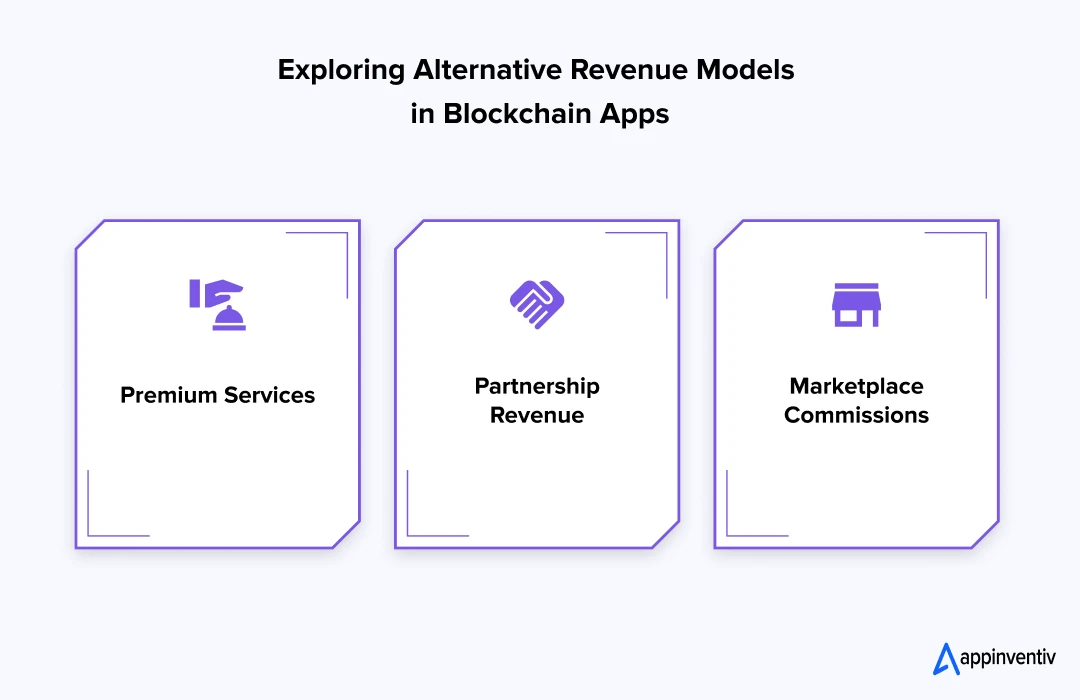
Premium Services: Premium services such as advanced analytics, priority customer support, or custom integrations offer added value to users willing to pay for a superior experience. This model enhances revenue by targeting users who need specialized features not available in the free version of the app.
Partnership Revenue: Blockchain apps can earn referral fees from third-party services, sell data insights, or offer white-label licensing to other businesses. These partnerships create diversified income streams and broaden the app’s ecosystem, increasing its reach and profitability.
Marketplace Commissions: Apps with marketplace functionality can charge commissions on peer-to-peer transactions and listing fees for service providers. Additionally, revenue can be earned from businesses paying for featured placements, offering a variety of monetization opportunities within the app’s ecosystem.
Build a High-Performance Blockchain App in the UAE with Appinventiv
The UAE has emerged as a global leader in blockchain innovation, supported by forward-thinking initiatives such as the Dubai Blockchain Strategy and the Emirates Blockchain Strategy. These programs aim to make Dubai the world’s first city fully powered by blockchain by 2025. With this ambitious vision, blockchain app developers in the UAE gain access to state-of-the-art resources, clear regulatory frameworks, and a thriving market.
Additionally, the UAE offers attractive tax incentives for tech development and draws global talent, positioning it as an ideal hub for blockchain businesses. Companies seeking to build enterprise-level blockchain solutions can tap into this dynamic ecosystem. To ensure you stay at the forefront of this technological revolution, Appinventiv can be your trusted partner in developing innovative and scalable blockchain solutions.
From smart contract development and tokenization to decentralized applications (DApps) and private blockchain, we built solutions that are engineered with precision, ensuring the highest standards of security and performance. As a reputed blockchain app development company, we are not just focused on short-term gains; we design blockchain systems that grow with your business, delivering lasting value and strategic impact.
The impact of our smoother and impactful execution is clearly visible in some of our blockchain projects like AVATUS, Empire, and Nova, where we successfully combined innovation with efficiency.
With in-depth knowledge of UAE regulatory frameworks and market dynamics, we ensure that your app is fully compliant while staying at the cutting edge of innovation. Whether you’re exploring the cost to build a blockchain app in the UAE or looking to scale an existing solution, partnering with Appinventiv means gaining a trusted ally committed to driving your blockchain success, unlocking new opportunities, and positioning your business at the forefront of the UAE’s digital transformation.
FAQs
Q. How much funding do I need for a blockchain app in the UAE?
A. The funding or the cost to build a blockchain app in the UAE depends on its complexity. A basic MVP with essential features like smart contracts and wallet integration typically costs between AED 55,000 to 185,000 ($15,000 – $50,000).
For more complex apps, such as DApps or enterprise solutions, requiring token issuance, the cost can range from AED 300,000 to AED 1,850,000 ($80,000 – $500,000+), depending on the features and integrations. Factors like platform selection, security requirements, and regulatory compliance in the UAE also influence costs.
Q. What is the ROI of building a blockchain app for UAE-based startups?
A. The ROI of building a blockchain app for UAE startups can be substantial. By improving operational efficiency, enhancing security, and reducing transaction costs, startups can see significant cost savings in the long run. Blockchain also offers transparency and security, which can attract investors and improve customer trust.
In terms of revenue, apps leveraging tokenomics, smart contracts, or transaction fees can offer continuous streams of income. Startups in the UAE benefit from tax incentives and access to a rapidly expanding blockchain ecosystem, which further boosts ROI potential.
Q. Should startups choose Ethereum, Polygon, or private chain for UAE apps?
A. The choice between Ethereum, Polygon, or a private blockchain depends on the specific needs of the startup:
- Ethereum is a solid choice for public, decentralized applications requiring transparency, but gas fees can be high.
- Polygon offers lower transaction fees and faster speeds while being compatible with Ethereum, making it a strong candidate for apps requiring scalability.
- Private blockchains are ideal for startups focusing on security, control, and compliance. They offer more customization but are more centralized.
For UAE-based startups, the choice depends on factors like regulatory requirements, transaction volume, and cost efficiency.
Q. How do features like wallet integration or token issuance impact cost?
A. Integrating features like wallet functionality and token issuance significantly impacts development costs. Wallet integration requires building secure interfaces and managing private keys, adding to development complexity and security measures, which can increase costs by AED 18,500 to 55,500 ($5,000 – $15,000).
On the other hand, token issuance requires creating a tokenomics model, integrating smart contracts, and setting up exchanges, which can add AED 37,000 to 148,000 ($10,000 – $40,000) depending on the token features (e.g., staking, governance). These features directly influence the blockchain app budget breakdown.
Q. How long does it take to build a basic blockchain MVP in Dubai?
A. Building a basic blockchain MVP in Dubai typically takes between 2 to 4 months. This timeline can vary based on the complexity of the app, the features included (e.g., smart contracts, wallet integration), and the development team’s expertise.
A well-defined MVP with core functionality such as transaction handling and basic security features can be developed more quickly, helping startups reduce risk and time-to-market. Understanding the blockchain MVP development cost is crucial at this stage, as it allows businesses to plan effectively, launch a functional product within budget, and gather real user feedback for future enhancements.


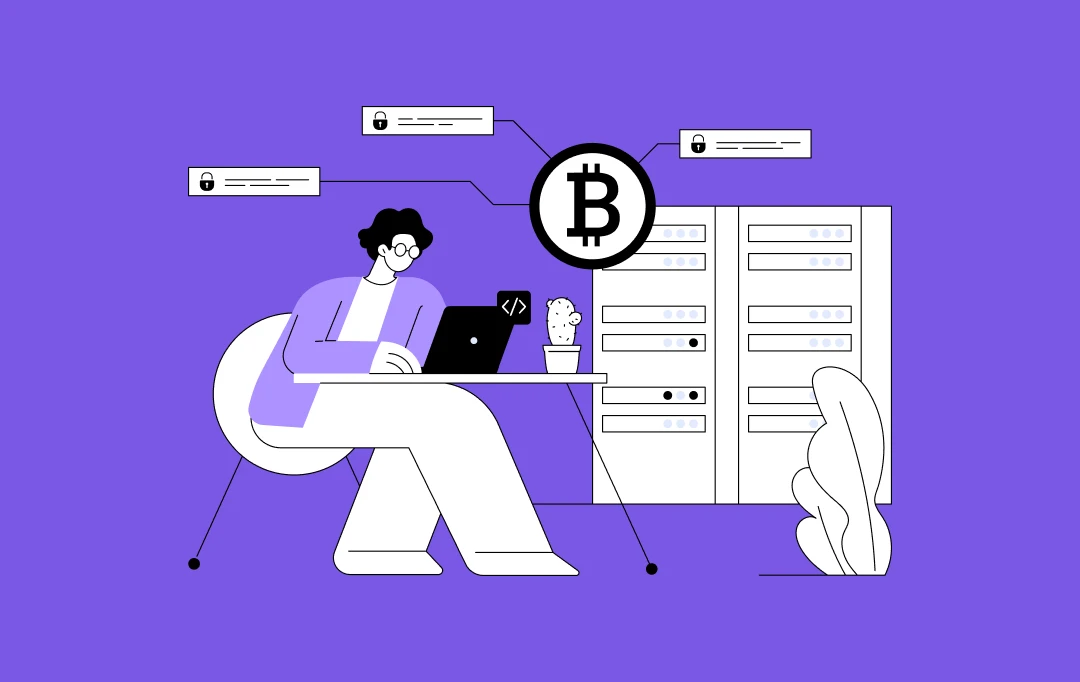
How Blockchain Integration Is Optimizing Business Processes in Dubai
Key takeaways: Blockchain is a strategic enabler in Dubai, transforming traditional business workflows by enhancing efficiency, transparency, and automation beyond cryptocurrency applications. Dubai’s supportive regulatory environment and government initiatives (e.g., VARA, Dubai Blockchain Strategy) create a clear, innovation-friendly framework, accelerating blockchain adoption. Integration with legacy systems through modular blockchain solutions enables enterprises to modernize operations…
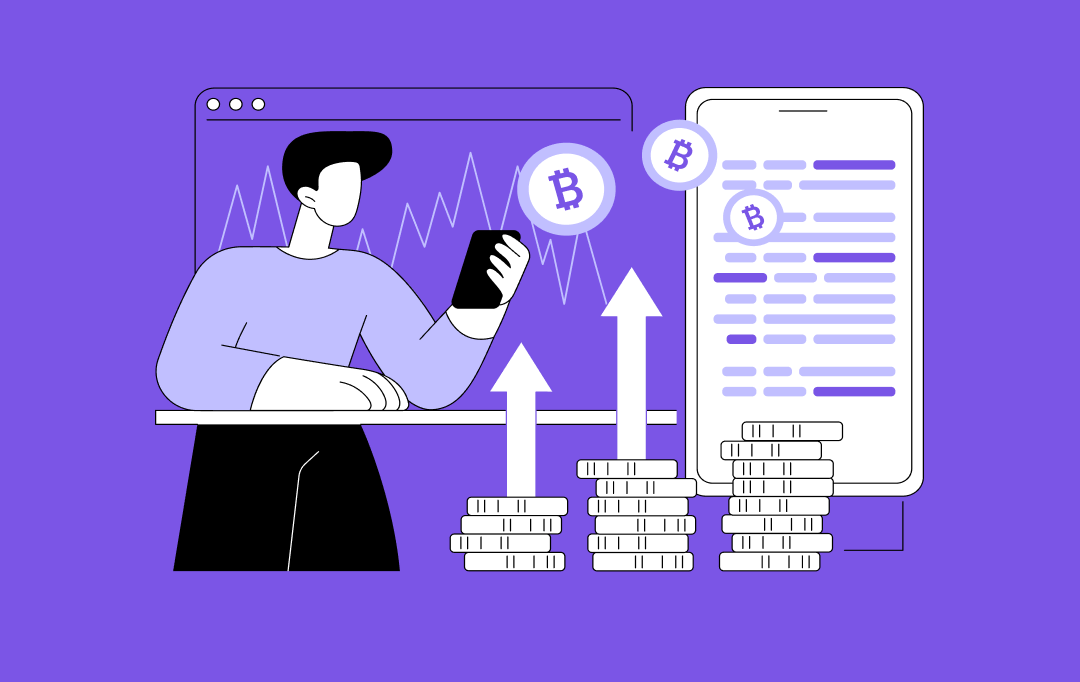
OTC Crypto Exchange Development - Benefits, Features, Process, Costs
As the world of cryptocurrency continues to evolve, the demand for Over-the-Counter (OTC) crypto exchanges has surged. Unlike traditional exchanges that are open to all traders and often suffer from market slippage when large trades are executed, OTC exchanges cater specifically to institutional investors, high-net-worth individuals, and corporate traders who need to make large transactions…

The Rise of Blockchain in Digital Marketing - Benefits, Use Cases and Challenges
Blockchain technology is revolutionizing digital marketing by transforming strategies through its decentralized and secure framework. It provides marketers with unparalleled transparency in campaign tracking and data management, guaranteeing increased security and privacy for users. As the digital landscape is advancing at a fast pace, blockchain in marketing offers the digital marketers with the means to…






